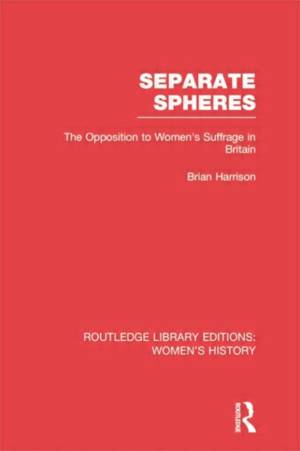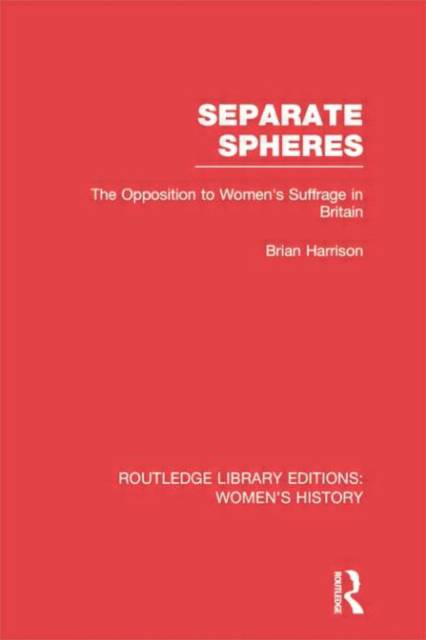
- Retrait gratuit dans votre magasin Club
- 7.000.000 titres dans notre catalogue
- Payer en toute sécurité
- Toujours un magasin près de chez vous
- Retrait gratuit dans votre magasin Club
- 7.000.0000 titres dans notre catalogue
- Payer en toute sécurité
- Toujours un magasin près de chez vous
Description
The British feminist movement has often been studied, but so far nobody has written about its opponents. Dr Harrison argues that British feminism cannot be understood without appreciating the strength and even the contemporary plausibility of 'the Antis', as the opponents of women's suffrage were called.
In a fully documented approach which combines political with social history, he unravels the complex politics, medical, diplomatic and social components of the anti-suffrage mind, and clarifies the Antis' central commitment to the idea of separate but complementary spheres for the two sexes.
Dr Harrison then analyses the history of organised anti-suffragism between 1908 and 1918, and argues that anti-suffragism is important for shedding light on the Edwardian feminists. The Antis also introduce us to important Victorian and Edwardian attitudes which are often forgotten and which differ markedly from the attitudes to women which are now familiar; on the other hand, his concluding chapter - which surveys the period from 1918 to 1978 - claims that many of these attitudes, though less frequently voiced in public, still influence present-day conduct. His book, published originally in 1978, therefore makes an important contribution towards the history of the British women's movement and towards understanding Britain in the nineteenth- and twentieth-centuries.
Spécifications
Parties prenantes
- Auteur(s) :
- Editeur:
Contenu
- Nombre de pages :
- 274
- Langue:
- Anglais
- Collection :
Caractéristiques
- EAN:
- 9780415752541
- Date de parution :
- 10-04-14
- Format:
- Livre broché
- Format numérique:
- Trade paperback (VS)
- Dimensions :
- 156 mm x 233 mm
- Poids :
- 407 g

Les avis
Nous publions uniquement les avis qui respectent les conditions requises. Consultez nos conditions pour les avis.






